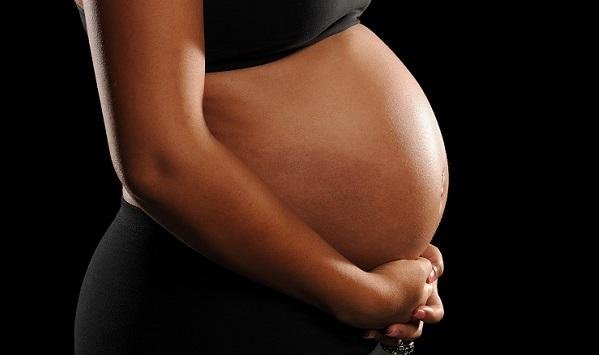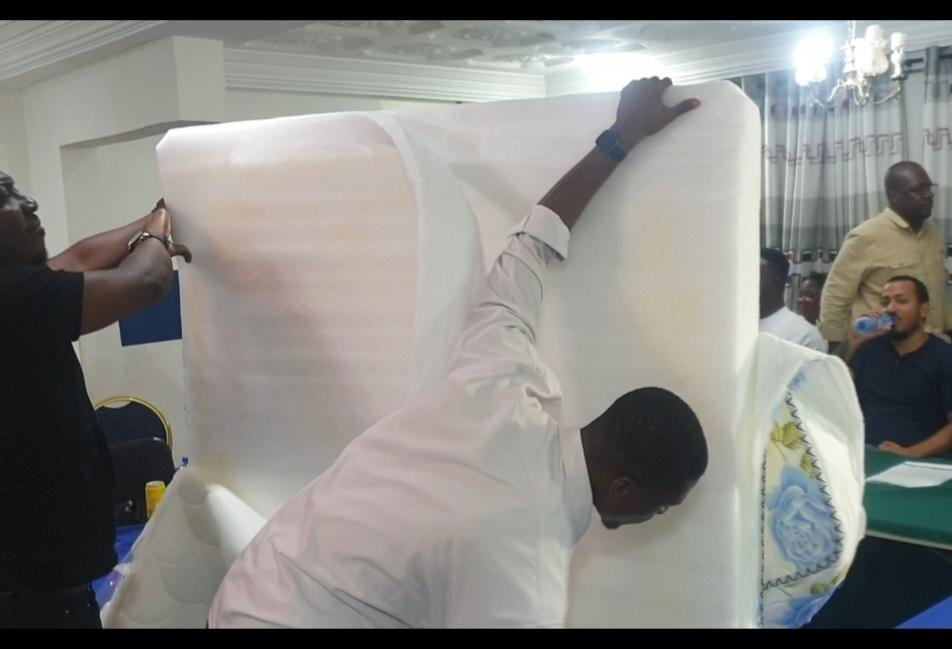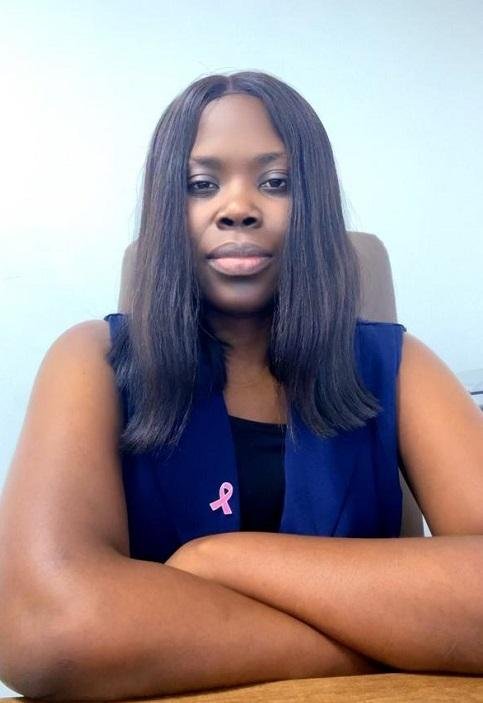News
Beyond morning sickness: The unexpected reality of pre-eclampsia

As a pregnant woman, every kick and twitch of the growing baby is a precious milestone, coupled with full expectations of holding the newborn in their arms at the end of their gestation.
For some women, their anticipation, joy, and hope are clouded by the threat of pre-eclampsia, a condition that can turn a dream pregnancy into a nightmare.
Pre-eclampsia
It is a disease characterised by high blood pressure and damage to many organs, such as the liver and kidney.
It is regarded as a silent predator that strikes without warning and could have devastating consequences for both the expectant mother and the foetus.
Despite its severity, it remains a misunderstood condition.
Pre-eclampsia has no regard for the age, health, or background of any pregnant woman and affects thousands of women worldwide.
It sets in after the 20th week of gestation in women who may have had normal blood pressure earlier. It can be present in the normal, moderate, or severe range.
‘A mother’s strength,
overcoming pre-eclampsia’
Mrs Adjoa Arthur is a 39-year-old trader in Ashaiman-Zenu and has three children: two boys and a girl.
She said her first pregnancy was without complications, but the last baby, Crystal Arthur’s pregnancy changed her dreams and almost turned them into nightmares.
Mrs Arthur recounted that she began having slight headaches, double vision, and easily fatigued symptoms, which she considered normal as every pregnancy comes with different experiences.
The symptoms spiked like a thunderstorm, and she started having blurry vision, severe headaches, nausea, and vomiting, among others.
“I gained weight abnormally; my face got swollen; I couldn’t breathe well; it became severe; I was panting for air; there was a time I almost died if not for the swift intervention of my husband.”
She added that she was diagnosed with pre-eclampsia on her 22nd week of gestation: “I was shocked because everything was normal; I never saw myself in that situation; the first pregnancy was smooth; I even thought it was spiritual.”
To save the baby and mother, she was induced to give birth in the 37th week of pregnancy. The baby was delivered more than 24 hours after the inducement.
“When I saw the baby, although I was weak, the joy I felt was immeasurable; it was a miracle. I thanked God for his goodness, and my husband was in tears,” Mrs Arthur narrated with joy.
Today my baby is thriving, a vibrant reminder of hope, courage, and thankfulness to God Almighty.
Pre-eclampsia can be dangerous and life-threatening by causing complications such as eclampsia, placenta abruption, foetal growth restriction, kidney and liver damage, low birth weight.
The cause of pre-eclampsia is not known; however, risk factors include expecting multiple babies, a previous history of pre-eclampsia, family history, and having a body mass index above 35.
While herbs may have health benefits, pre-eclampsia is a serious medical condition that requires evidence-based medical treatment. The use of herbs without medical treatment may lead to further serious complications.
Dr Akosua Agyeiwaa Owusu-Sarpong, the Greater Accra Regional Director of Health Services, said the region recorded 170 maternal deaths, of which 30 per cent were due to pre-eclampsia.
She said this during the launch of the 2024 world pre-eclampsia day at the Shai-Osudoku District Hospital, stating that pre-eclampsia in Sub-Saharan Africa occurs among about 13 per cent of all pregnant women.
Conclusion
Pre-eclampsia can lead to devastating consequences for the woman, baby, and even the family if not prevented and handled properly.
Pregnant women have therefore been urged by health experts to seek immediate treatment from health facilities and not desist from taking other non-prescribed medications. –GNA
News
Watch your mattresses!…they can cause chronic back pain, other health disorders

Local mattress manufacturers have raised serious concerns over the influx of substandard mattresses, warning that these products pose significant health risks to consumers and threaten the sustainability of Ghana’s mattress industry.
At a press briefing held in Kumasi on Tuesday, manufacturers accused unregistered foreign entities, particularly Chinese firms, of flooding the market with cheap mattresses made from polystyrene.
Mr Yaw Ampem Darko, a spokesperson for the local manufacturers, warned that prolonged use of substandard mattresses, especially those made with polystyrene, could result in chronic back pain, musculoskeletal disorders, poor posture, and diminished sleep quality.
These health implications, they stressed, were not always immediately evident but accumulate over time, especially among vulnerable populations such as children and the elderly.
This material, typically used for packaging, is considered unsuitable and unsafe for bedding.
According to industry leaders, these sub-standard products have been circulating for at least five years, gaining traction among unsuspecting consumers due to their unusually low prices.
“These mattresses are being sold at suspiciously low prices, luring unsuspecting consumers who are unaware of the health dangers.”
“We are not just protecting our businesses; we are protecting Ghanaian lives. The government must act swiftly to stem this tide before more citizens fall victim to these dangerous products,” Mr Yaw Ampem Darko stated.
The Ghana Standards Authority (GSA) has acknowledged the issue and, in response, announced a nationwide enforcement campaign aimed at clamping down on the production, distribution, and sale of substandard mattresses.
The campaign, which was scheduled to take effect from September 30, 2025, was empowered by the GSA Act, 2022 (Act 1078), which authorises the Authority to seize and seal non-compliant products and impose sanctions on offenders.
In a statement signed by the Director General of the GSA, Professor George Agyei, the authority cited Sections 29 and 43 of the Act, reiterating that all mattresses sold in Ghana must meet established national standards or face confiscation.
The statement further emphasised that mattresses failing to meet these standards not only compromise sleep quality but also contribute to long-term health complications, including spinal and neck pain.
Despite the GSA’s commitment, manufacturers have expressed frustration over delays in implementation and called for stronger enforcement mechanisms.
They urged the GSA to work in close collaboration with the Customs Division of the Ghana Revenue Authority and national law enforcement agencies to identify and prosecute violators of Ghana’s quality standards.
Manufacturers are also appealing to consumers to remain vigilant and prioritise their health by verifying that any mattress they purchase bears the GSA certification mark.
Moreover, they caution the public against purchasing suspiciously cheap mattresses that lack proper labelling or identifiable branding, as these were often indicators of substandard or counterfeit products.
As the official enforcement deadline had expired with no show, the local producers insisted that much more than business interests were at stake.
They argued that without swift and sustained action, the health and safety of Ghanaian consumers would continue to be compromised.
“Public awareness, strict enforcement, and collaboration among regulatory bodies are essential if we are to protect the integrity of the local industry and the wellbeing of the Ghanaian people,” Mr Darko indicated.
From Kingsley E. Hope, Kumasi
Join our WhatsApp Channel now!
https://whatsapp.com/channel/0029VbBElzjInlqHhl1aTU27
News
Raissa Initiative demands harsher punishment for sexual abusers of girls

The Founder of the Raissa Child Protection Initiative, Ms Raissa Sambou, has urged authorities to impose severe punishment on individuals, including teachers and guardians, who sexually abuse young girls.
Speaking in an interview to mark this year’s International Day of the Girl Child (October 11), Ms Sambou condemned the increasing cases of sexual exploitation involving minors, describing such acts as “heartless, criminal, and a total betrayal of trust.”
She noted that those entrusted with the care and education of children must not be the same people who violate them, stressing that “anyone found guilty of abusing a girl child must face the full rigours of the law without leniency.”
The International Day of the Girl Child is observed annually to promote the rights of girls, empower them to reach their full potential, and draw attention to the challenges they face worldwide.
Ms Sambou lamented that poverty continues to push many young girls into vulnerable situations, exposing them to exploitation.
She expressed concern that some headmasters, teachers, and community members who should protect girls rather take advantage of them.
“This must stop immediately. The safety of every girl must never be compromised,” she said, urging the public to report all forms of abuse to the appropriate authorities and called for swift action by law enforcement agencies against perpetrators.
Addressing girls directly, Ms Sambou encouraged them to take their education seriously and to believe in their potential.
“It is possible to be young and responsible. Your future is bright, protect it, believe in it, and never let anyone dim your light,” she advised.
She further urged girls to choose their friends wisely, stay disciplined, and speak up if anyone makes sexual advances toward them.
Ms Sambou concluded with a rallying call for collective action, saying “speak up, protect them, and empower them. Together, we can end the sexual exploitation of girls.”
By Esinam Jemima Kuatsinu
Join our WhatsApp Channel now!
https://whatsapp.com/channel/0029VbBElzjInlqHhl1aTU27






